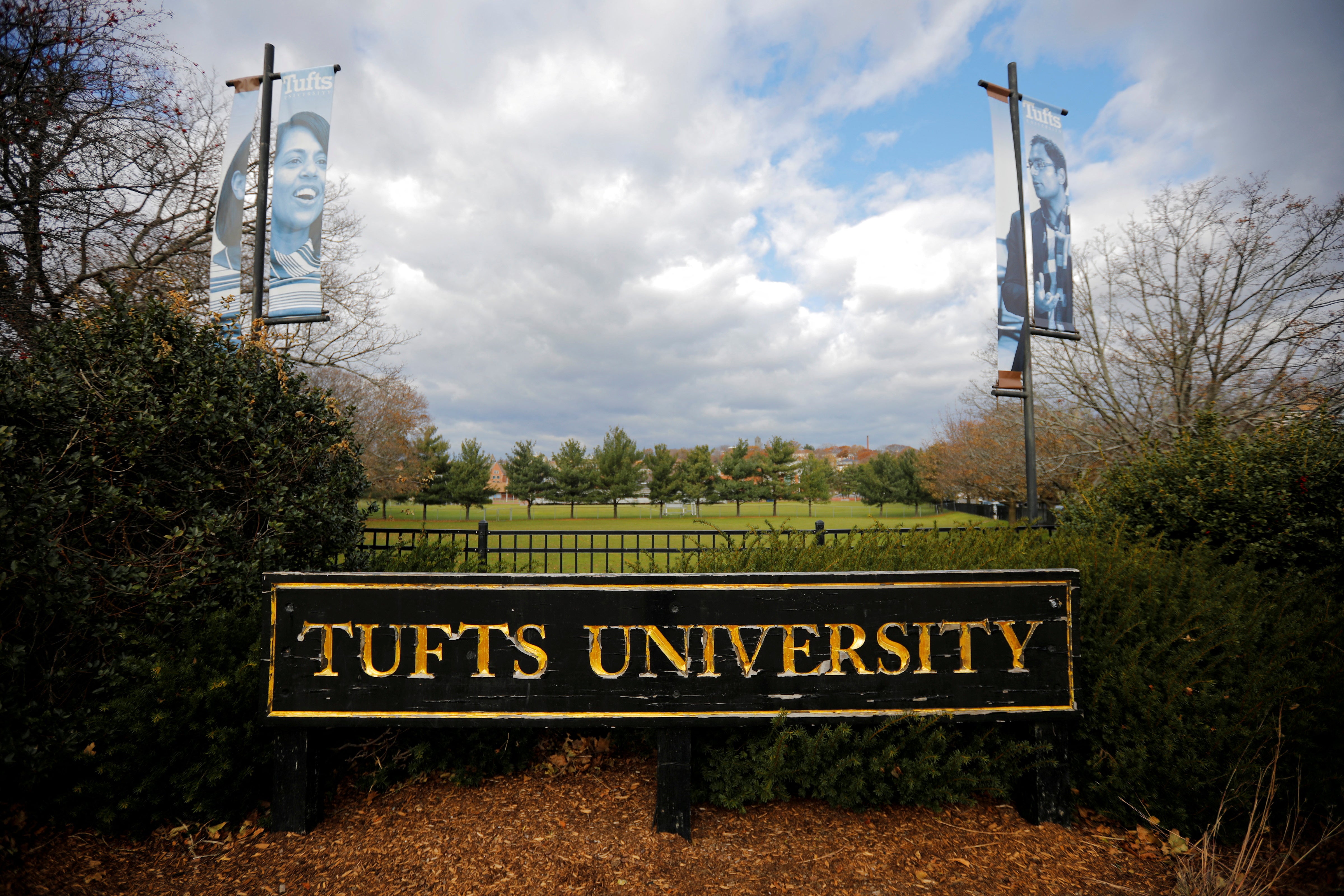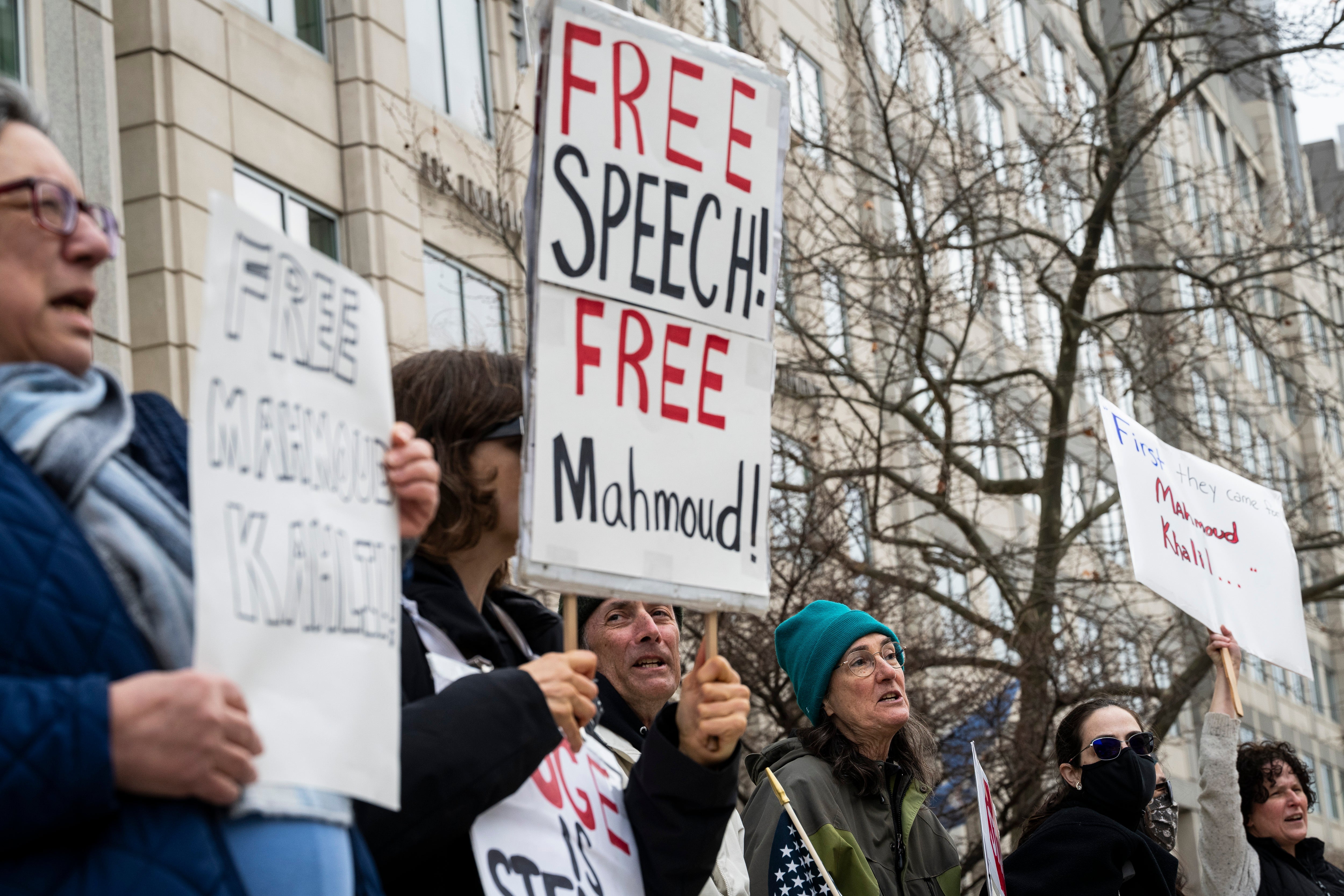Federal immigration authorities arrested a Tufts University doctoral student from Turkey on Tuesday night, the latest in a string of arrests targeting international students for their Palestinian advocacy.
Rumeysa Ozturk, a PhD student in the graduate school of arts and sciences at the Massachusetts university, was arrested by Immigration and Customs Enforcement officers outside her off-campus apartment on her way to an Iftar dinner with friends, according to her attorney and activists.
In an email to the Tufts community, university president Sunil Kumar said the school was told that federal authorities terminated her visa status, “and we seek to confirm whether that information is true.”
The Independent has requested comment from ICE.
Ozturk, who is in the United States on a non-immigrant F-1 visa for international students, was meeting with friends to break her Ramadan fast when she was detained near her home in Somerville, attorney Mahsa Khanbabai said in a statement to The Independent.
“We are unaware of her whereabouts and have not been able to contact her,” she said.
Tufts did not have any prior knowledge of the arrest “and did not share any information with federal authorities prior to the event,” Kumar wrote.
Kumar issued a reminder that the university has a protocol for how to respond to federal agents making “unannounced visits” on or off campus.
Ozturk’s attorney has filed a petition of habeas corpus challenging her arrest and detention. Massachusetts District Judge Indira Talwani is giving federal officials until Friday to respond to the complaint, and Ozturk cannot be moved outside the state without at least 48 hours of advance notice to the court, according to Talwani’s order.

Ozturk is a student at the university’s doctoral program for Child Study and Human Development, and graduated with a master’s degree from the Teachers College at Columbia University, according to her LinkedIn.
“I am passionate about researching children’s and adolescents’ digital media and technologies for caring, kind, and compassionate media environments,” she writes. “As an interdisciplinary media researcher and developmental scientist in training, I research children’s and adolescents’ positive development in a media-embedded, globalized, and connected world.”
Last year, in response to Israel’s ongoing devastation of Gaza, Ozturk co-authored an op-ed in The Tufts Daily newspaper calling on Kumar to “acknowledge the Palestinian genocide” and for the university to divest from companies with direct or indirect ties to Israel.
Ozturk is among dozens of students and professors identified by Canary Mission, a pro-Israel campaign that maintains a database intended to blacklist and intimidate activists the group accuses of promoting “hatred of the USA, Israel and Jews.”
Her arrest follows similar actions from federal authorities targeting student activists and students who have merely spoken in support of Palestine, none of whom have been accused of committing any crime. Donald Trump’s administration has zeroed in on campus activism at prestigious universities, where Israel’s war in Gaza has provoked a wave of demonstrations and protest encampments demanding an end to U.S. support for Israel’s devastation.
Students have been accused of supporting terrorism and violating the president’s executive orders directing federal agencies investigate and potentially remove non-citizens who “bear hostile attitudes toward its citizens, culture, government, institutions, or founding principles” and “advocate for, aid, or support designated foreign terrorists and other threats to our national security.”

On Tuesday, university professors and academic organizations from across the country filed a lawsuit accusing the Trump administration of violating the First Amendment through a “climate of fear and repression” on college campuses.
“Out of fear that they might be arrested and deported for lawful expression and association, some noncitizen students and faculty have stopped attending public protests or resigned from campus groups that engage in political advocacy,” according to the lawsuit.
“Others have declined opportunities to publish commentary and scholarship, stopped contributing to classroom discussions, or deleted past work from online databases and websites,” attorneys wrote. “Many now hesitate to address political issues on social media, or even in private texts. The [policy], in other words, is accomplishing its purpose: it is terrorizing students and faculty for their exercise of First Amendment rights in the past, intimidating them from exercising those rights now, and silencing political viewpoints that the government disfavor.”
On Tuesday, a federal judge in Manhattan blocked the Trump administration from deporting Yunseo Chung, a Columbia University student and lawful permanent resident who was the victim of the government’s “shocking overreach,” vilifying her political views and constitutionally protected right to protest, according to her attorneys.
Columbia graduate Mahmoud Khalil, a lawful permanent resident and prominent student activist accused of organizing “pro-Hamas” attacks on campus, is currently battling his removal from the United States after his shocking arrest in front of his wife, a U.S. citizen who is eight months pregnant, earlier this month. He is currently detained in Louisiana as his case moves jurisdictions to a federal court in New Jersey.
